The saints have served as the heroes in Western culture, and have been the impetus for renewal in the Western Tradition. God has called them, and they, by responding to His call, have become the aristocrats of the soul.
 Christopher Dawson, the brilliant Anglo-Welsh Roman Catholic historian of the twentieth century, argued that understanding the life and teachings of St. Boniface was the key to understanding the origins of Europe. When encountering a Hessen tribe worshipping an oak tree dedicated to the Norse god Thor, St. Boniface promptly grabbed an axe and cut down the tree. According to legend, the tree exploded into four parts at the first touch of the axe’s blade. Much to the surprise of the chagrined Hessians, Thor remained aloof and the intruder went unpunished. “But when he had made a superficial cut, suddenly the oak’s vast bulk, shaken by a mighty blast of wind from above, crashed to the ground shivering its topmost branches into fragments in its fall,” a posthumous account recorded. “As if by the express will of God (for the brethren present had done nothing to cause it) the oak burst asunder into four parts, each part having a trunk of equal length.”
Christopher Dawson, the brilliant Anglo-Welsh Roman Catholic historian of the twentieth century, argued that understanding the life and teachings of St. Boniface was the key to understanding the origins of Europe. When encountering a Hessen tribe worshipping an oak tree dedicated to the Norse god Thor, St. Boniface promptly grabbed an axe and cut down the tree. According to legend, the tree exploded into four parts at the first touch of the axe’s blade. Much to the surprise of the chagrined Hessians, Thor remained aloof and the intruder went unpunished. “But when he had made a superficial cut, suddenly the oak’s vast bulk, shaken by a mighty blast of wind from above, crashed to the ground shivering its topmost branches into fragments in its fall,” a posthumous account recorded. “As if by the express will of God (for the brethren present had done nothing to cause it) the oak burst asunder into four parts, each part having a trunk of equal length.”
Awed, the Barbarians were ready to listen.
Legend tells that in the spot of the felled oak, an evergreen instantly sprang forth from the ground, and Boniface’s followers placed candles on it so that Boniface could preach the Gospel late into the night, thus creating the tradition of the Christmas tree.
Closely studying the exploits of the intrepid saint, Dawson proclaimed St. Boniface “a man who had a deeper influence on the history of Europe than any Englishman who has ever lived.” In his Medieval Essays, Dawson took this even further. His many accomplishments almost give Boniface “the right to be called the founder of medieval Christendom.” Perhaps providentially, every significant moment in Boniface’s life corresponded with a further Islamic incursion into Christian Europe. “During the generation before the birth of St. Boniface the whole of the Christian East had been conquered” and Byzantium almost fell. When he was a “monk at Nursling in 711-713[,] Spain was being conquered by the Saracens, and while he was beginning his mission to Germany the Saracens were beginning their invasions of France.”
Boniface’s genius came from his realization that Christian Europe would need a Christianized German people to serve as a barrier to the growing Islamic threat in the South. He also needed the protection of the powerful Martel family in the Frankish regions. Each, then, would allow the classical documents, classical tradition, and Christian scriptures to remain protected in the relative safety of the British Isles. Boniface was a diplomat as well as a spiritual figure, who attempted to infuse Christianity into barbarian culture.
The work of St. Boniface did more than any other fact to lay the foundations of medieval Christendom. His mission to Germany was not an isolated spiritual adventure like the achievements of his Celtic predecessors; it was part of a far-sighted programme of construction and reform planned with all the method and statesmanship of the Roman tradition. It involved a triple alliance between the Anglo-Saxon missionaries, the Papacy, and the family of Charles Martel, the de facto rulers of the Frankish kingdom, out of which the Carolingian Empire and the Carolingian culture ultimately emerged.
Like all good men, Dawson argued, Boniface surrendered his own will and became “a servant rather than a master of his age… accepting every charge and never attempting to impress his personality on the course of history.”
Though eventually martyred for his selfless and Grace-filled efforts, St. Boniface succeeded in creating what we would now recognize as the beginnings of Europe, a synthesis of the classical, Christian, and Germanic. His contributions in the formation of Christian Europe are equaled only by St. Gregory the Great and St. Benedict. Fulda, established by Boniface, remained a center of European evangelization long after Boniface’s martyrdom. As the Archbishop of Canterbury eulogized in the year of Boniface’s death, 754, “We recall the wondrous—nay, the ineffable—grace of God and render thanks that the English people were found worthy, foreigners as they are, to send this gifted student of heavenly learning, this noble soldier of Christ, with many pupils well taught and trained, to far-off spiritual conflicts and for the salvation of many souls through the grace of Almighty God.” Since his death, Boniface has been celebrated by Roman Catholics, Anglicans, and Lutherans, and he is regarded as a patron of Germans and brewers.
This prolonged discussion of Boniface should, I hope, serve as an example for all women and men of Christendom. Nature, after all, makes nothing in vain. And, Grace perfects nature. Submission, then, does not mean one loses himself. Instead, he becomes who he is created to be: “He not only felt freer when he bent,” Chesterton understood, “he actually felt taller when he bowed.” This is the essence of true freedom. “For you were called for freedom,” St. Paul told the Galatians. “But do not use this freedom as an opportunity for the flesh; rather serve one another through love.” Duty to the Good, the True, and the Beautiful makes us more human, not less. There is nothing new under the sun, the Old Testament assures us. All that exists, came from the Creator at the Creation. God calls all things to him, through Christ, guided by the Paraclete. When we bend our knee and bow to the true God, through His Grace, we become members of the City of God. Each new citizen of the City of God transforms the earth in ways unimaginable to our finite, created minds. Therefore, no matter when some imagined Golden Age might or might not have existed, we can not return to it, and we certainly cannot build it, no matter how many hears we are given individually and collectively. One can and should learn from the past and from the so-called lessons of history, but he must understand that a new Christendom, if it is to exist, will come about only because of God’s will and by and through God’s design. “The only power that can resist this descent into the abyss is the power of the spirit—not the spirit of man, which can so easily become the blind instrument of impersonal and irrational forces, but the Spirit of God, which is the source of life and light, the fountain head of justice and order,” Dawson wrote in 1941. “Our civilization cannot be saved by human power or human science. It can only be saved by a profound movement of change or conversion, which brings the human spirit into living contact with the Spirit of God.” Paradoxically, one becomes most human when he allows that which is least human—the light of the Logos—to enlighten his soul.
Ultimately, the Church—as the only historical entity that transcends nationalisms and ideologies—must use its intellectual strength to combat, attenuate, or destroy that which was loosed from the abyss and from the diabolic and idyllic imagination of man. “The spirit breathes and they are created and the face of the earth is renewed,” Dawson wrote. The mission of the Spirit is to bring all things back to Christ.
The Kingdom of God is shown to be nothing less than the restoration of the whole creation in and through Christ. The Church is the embryo of a new world, and the Spirit of Christ, which dwells in it, is the principle of its life and the source of its growth. With the Death of Christ, the old order came to an end, and His Resurrection, together with the consequent gift of the Spirit of His disciples, inaugurated a new order which will only attain completion at His second coming ‘with power.’
Therefore, one must seek unity, finding allies among and within all three branches of Christianity: Catholic, Orthodox, and Protestant. Knowing this well, John Paul II spent much of his pontificate apologizing to those whom the Catholic Church has harmed or scandalized: Jews, Muslims, Protestants, and Orthodox. More often than not, sadly, his words of mercy encountered the deaf ears of those who prefer to chew on their bitterness. Pope Benedict has continued this mission of John Paul II, focusing on those areas in which one can find common intellectual ground with other faiths. “It is, therefore, the duty of those elements in Western Society that still possess a principle of spiritual unity to rally the divided forces of our civilization,” Dawson believed. Indeed, Dawson had great hopes for the future of the West and the world. The whole history of Christianity has been one of constant reform and renewal, he knew. Just as the human person is born anew in Christ through baptism and sanctification, so too can culture be reclaimed and remade for Christ, promoting order, justice, and dignity.
The saints have served as the heroes in Western culture, and have been the impetus for renewal in the Western Tradition. God has called them, and they, by responding to His call, have become the aristocrats of the soul. In a private letter, Christopher Dawson wrote:
I should say that no people has ever been converted to Christianity by a learned apologetic or by mysticism, important as these things are. The great examples of Christian evangelization are St. Paul’s apostolate in Asia Minor and Greece, St. Francis Xavier and his successors in Japan, and perhaps St. Patrick in Ireland. In all these cases it is a very simple type of evangelism, joined with miracles and works of mercy. . . . It is of course simply a question of spiritual dynamism: where there is direct spiritual communication through a saint or an evangelist, you always find results, but where it is a matter of routine organizations and activities, you do not.
Always, though, the prompting and guidance for renewal comes from the Holy Spirit, through the Church. “A Christian has only to be in order to change the world, for in that very act of being there is contained all the mystery of divine life.” The evils of ideologies and nationalisms “are powerless against the Spirit who is the Lord and Giver of Life,” Dawson wrote. But, he cautioned, “whenever Catholics cease to be active, when they rest in a passive acquiescence in what they have received, Catholicism tends to lose contact with contemporary culture and the world drifts away from the Church.” Since the culture is the beginning of all things, it must be lost. Once it is, all things preceding from it—legal, political, and social systems—will eventually fall as well. Christ must be at the center of culture, if humanity is to survive. Original sin, of course, will remain. But, through Grace, one can do what he is meant to do and attenuate sin to as great a degree as possible.
If, however, as Catholics believe, the Incarnation sanctified history and if God is outside of time, when He enters time, his grace does not extend only toward the future. It extends into the past as well. By knowing the past, we better understand the nature of love. For Christ has already shown us the way: to humble ourselves, to give up our wills, and to become His instruments, not in a utilitarian sense, but in a loving sense. Just as Christ humbled Himself on the cross for His Father and humanity, so must we, bending our knee before the True Sovereign.
Choose now what you will pursue, that your praise may be not in yourself, but in the true God, in whom there is no error. For of popular glory you have had your share; but by the secret providence of God, the true religion was not offered to your choice. Awake, it is now day; as you have already awaked in the persons of some in whose perfect virtue and sufferings for the true faith we glory: for they, contending on all sides with hostile powers, and conquering them all by bravely dying, have purchased for us this country of ours with their blood; to which country we invite you, and exhort you to add yourselves to the number of citizens of this city.
Man will only conquer when he becomes a part of Creation itself. A man, after all, Guardini argued “is a person called by God. As that man he is capable of answering for his own actions and of participating in reality through an inner and innate source which is one with himself. This capacity makes each man unique.” And, the individual can change history, for God or for God’s enemies. “The death of a man at a critical juncture, his disgust, his retreat, his disgrace, have brought innumerable calamities upon a whole nation,” Burke explained in his powerful exhortation to the British to defeat the French Revolutionaries and their remnants without trepidation, Letters on a Regicide Peace. Still, “a common soldier, a child, a girl at the door of an inn, have changed the face of fortune, and almost of Nature.”
As we look over the centuries of Western Civilization, many virtuous people stand out. These are our ancestors, and we have much to learn from them. Through their sacrifices, each became fully human. Indeed, our ancestors are Leonidas and his three-hundred Spartans, who fought to the death as they defended the pass at Thermopylae, preventing Hellas, the cradle of intellectual thought, from becoming the province of imperial Persia. Herodotus described it well:
But Xerxes was not persuaded any the more. Four whole days he suffered to go by, expecting that the Greeks would run away. When, however, he found on the fifth that they were not gone, thinking that their firm stand was mere impudence and recklessness, he grew wroth, and sent against them the Medes and Cissians, with orders to take them alive and bring them into this presence. Then the Medes rushed forward and charged the Greeks, but fell in vast numbers: others now took the places of the slain, and would not be beaten off, though they suffered terrible losses. In this way it became clear to all, and especially to the king, that though he had plenty of combatants, he had but very few warriors.
The Greeks—organized in units by their respective towns—continued to fight, despite suffering severe wounds and being greatly outnumbered. After days of battering, the Greeks decided to break up their defense. Some would stay, others would return to their respective city-states to prepare for a defense. The Spartans, under the leadership of King Leonidas, decided to stay. The Oracle had prophesized either greatness or ruin for them, and they believed they would attain the former through sacrifice. Should they flee to defend their homes, Leonidas believed, all would be lost. Allied with the Thespians, who refused to abandon the Spartans, Leonidas and roughly three-hundred men made their last stand. At the pass, the “gates of fire,” they freely drove themselves into the Persians, mostly conscripts, being forced to fight by bullwhips at their backs. Leonidas threw himself into the invading force and died quickly.
Drawing back into the narrowest part of the pass, and retreating even behind the cross wall, they posted themselves upon a hillock, where they stood all drawn up together in one close body, except only the Thebans. The hillock whereof I speak is at the entrance of the straits, where the stone lion stands which was set up in honour of Leonidas. Here they defended themselves to the last, such as still had swords using them, and the other resisting with their hands and teeth; till the barbarians, who in part had pulled down the wall and attacked them in front, in part had gone round and now encircled them upon every side, overwhelmed and buried the remnant which was left beneath showers of missiles.
Overwhelmed by the numbers of Persians, the Greeks fell quickly. As they did, they continued to fight, inspired by one officer declaring “If the Medes darken the sun, we shall have our fight in the shade.” The mission at Thermopylae proved vital to the defense of Hellas itself. For, as Leonidas and his three-hundred Spartans sacrificed each of their lives, attempting to hold the pass at Thermopylae against the horde of Oriental invaders, Athens prepared a defense. When the last Greek died at the Gates of Fire, the West was born.
Our ancestor is Marcus Cicero, the last great man of the Roman Republic. Even as the republic crumbled around him, with Marc Antony’s assassins on their way to murder him, Marcus Cicero continued to promote virtue and the natural law. Cicero best understood the republic at its end. Mark Antony’s assassins caught up with Cicero, and cut off his head and hands, mounting them on the rostra of the Roman Senate. When the Senators stared in horror at the rostra, Plutarch wrote, they saw not the hands and face of Cicero, but the twisted soul of Antony.
Though a pagan, Cicero foreshadowed many such deaths over the next several centuries. Our ancestors are St. Stephen, Felicia, and Perpetua, and thousands of others, all of whom died for a simple yet profound belief: that love conquers all. They, like their Redeemer, were suffering servants. And, the wise know that beauty and suffering remain intimately connected. The venue has changed, but the legal sanction has not. Many of our newest martyrs are the 130 million who have had their lives ended since 1973, not by the sword, mace, or lion’s jaw with maddened crowds cheering on their destruction, but through the sterile, progressive labs of modernity with grim nurses and doctors treating their victims as mere inanimate protoplasm. After all, they argue, adulterating the gift, what is humanity without choice? The result has been grace denied and the eternal contract disrupted.
Our ancestor is St. Boniface, who almost single-handedly evangelized and converted the northern pagan Germanic tribes in early medieval Europe.
Our ancestors are the anonymous Beowulf poet, Geoffrey Chaucer, and William Shakespeare.
Our ancestors are St. Francis, Erasmus, St. Ignatius, St. Thomas More, and St. John Fisher who rooted corruption out of the medieval and Renaissance Church. As one person wrote of More, who was beheaded by his friend Henry the VIII for not sanctioning his divorce: “certainly no martyr ever surpassed him in fortitude… ‘that innocent mirth which had been so conspicuous in his life, did not forsake him to the last . . .his death was of a piece with his life. There was nothing in it new, forced or affected. He did not look upon the severing of his head from his body as a circumstance that ought to produce any change in the disposition of his mind.’”
Our ancestors are the minutemen who sacrificed their lives at Lexington and Concord, preventing the British from getting the weapons stores. Once the fighting finished, they laid down their muskets and returned to their farms to finish plowing and planting, to have dinner with their families. When the need arose, they again put their lives on the line. There could be no better definition of a republican in the Western Tradition.
Our ancestors are the 187 Tennesseans and Tejanos who gave their lives at a little Spanish mission known as the Alamo on March of 1836. They understood the price of Republican liberty and they paid it. Their sacrifice gave the new Republic a slogan of victory, and “Remember the Alamo” was shouted all the way to San Jacinto.
Our ancestor is William H.L. Wallace, a brigadier general from Illinois, the only officer to hold his men together on April 6th, 1862 near a small Tennessee Church. His refusal to budge created a hornet’s nest; the bullets were so thick, the sound resembled a hive. Wallace and every man under his command gave their lives that day, allowing Generals Grant and Sherman to retake the area around Shiloh Church permanently, the following day.
Indeed, our ancestors are all three million men who fought during the Civil War, 700,000 of whom gave their lives. Each side fought for virtue; each side had character. General Joshua Chamberlain of Bowdoin, an academic classicist and rhetorician, witnessing the surrender ceremonies on April 12, 1865, stated it best:
Honor answering honor…. [as men] of near blood born, made nearer by blood shed…. On our part not a sound or a trumpet more, nor roll of drum; nor a cheer, nor word nor whisper of vain-glory, nor motion of man standing again at the order, but an awed stillness rather, and breath-holding, as if it were the passing of the dead…. Brave men may become good friends.
Confederate and Yankee notions, to be sure, were different. Those in the North fought for duty; those in the South fought for honor. Each side feared shame, that is, a disgraced character.
Our ancestors died in the barbed wire and mechanical death of the trenches in France; our ancestors died on the beaches of Normandy, the mountains of Korea, and the rice paddies of Vietnam and Cambodia—fulfilling their patriotic duty, betrayed by those in Washington claiming to lead them. They led these good, patriotic men and women, who wanted nothing more than to fight the good fight, for motives often less then honorable, sometimes for oil and resources, sometimes to gain political clout, sometimes, because it was the right thing to do. Most recently, our ancestors have died in the deserts of the middle east.
Our ancestor is Tom Burnett, a Wall Street banker and a commercial passenger of a jet airliner, who over Pennsylvania skies on a clear September day in the year 2001, sacrificed himself so that no more American cities would be attacked by Islamic terrorists. When his wife told him over the cell phone that New York had already been attacked, he responded: “We’re all going to die but three of us are going to do something,” he told his wife. “I love you honey,” were his last known words. What better tribute to the words and spirit of the American Revolutionary flag: “don’t tread on me” is possible?
Each of these persons played his part in the Economy of the West, forcing us to confront and acknowledge his sacrifice for Western Civilization. Such acts re-center us, make us whole. Each such act reflects the true Act, the sacrifice of Christ on the Cross. “The heart of the citizen is a perennial spring of energy,” Burke reminded us. “Whilst our heart is whole, it will find means, or make them.”
In this vein, Besieged will attempt to explain the greatest challenges to the Church over the past five centuries. In doing so, though, it will always remember that for every evil the Church encounters, the Logos enlightens a saint to show us the way out of our difficulties.
This is part four of a series. See part one, “Besieged”: The Unwavering Church, part two, “Besieged”: Incarnational History, and part three, “Besieged”: Sanctifying the Pagan.
The Imaginative Conservative applies the principle of appreciation to the discussion of culture and politics as we approach dialogue with magnanimity rather than with mere civility. Will you help us remain a refreshing oasis in the increasingly contentious arena of modern discourse? Please consider donating now.
The featured image, uploaded by Wolfgang Sauber, is “Bad Erlach (Lower Austria). Saint Anthony of Padua parish church—Altar painting (1938) by Joseph Weilharter: Heilige Bonifatius und Augustinus. This file is licensed under the Creative Commons Attribution-Share Alike 4.0 International license, courtesy of Wikimedia Commons.


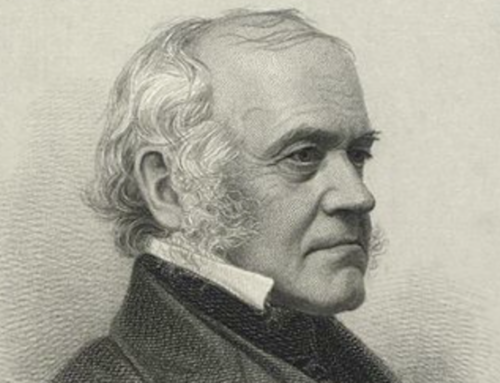
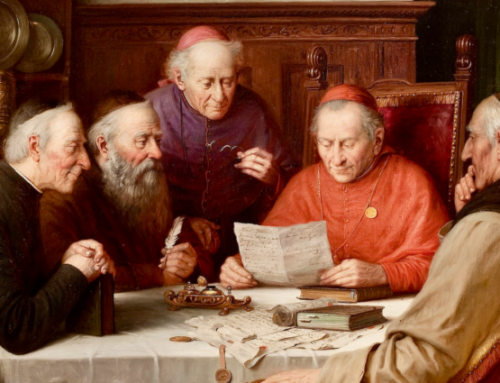
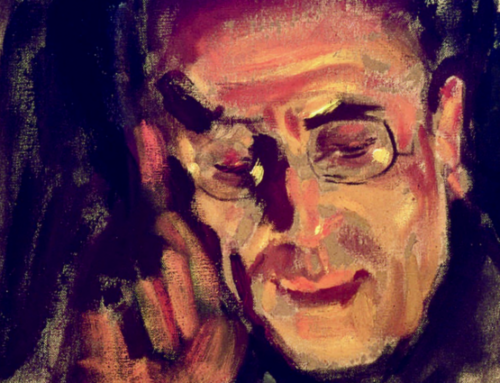
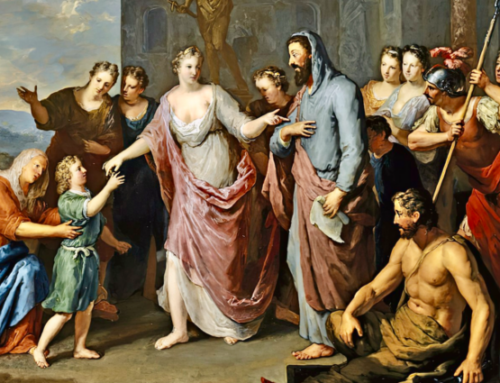
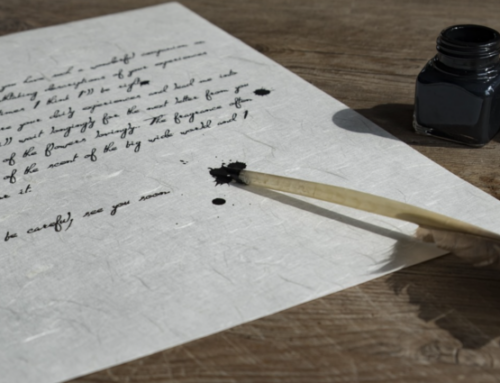
I am enjoying these installment of Besieged so much. I wish it had been published as a book, but this is the next best thing Thanks.